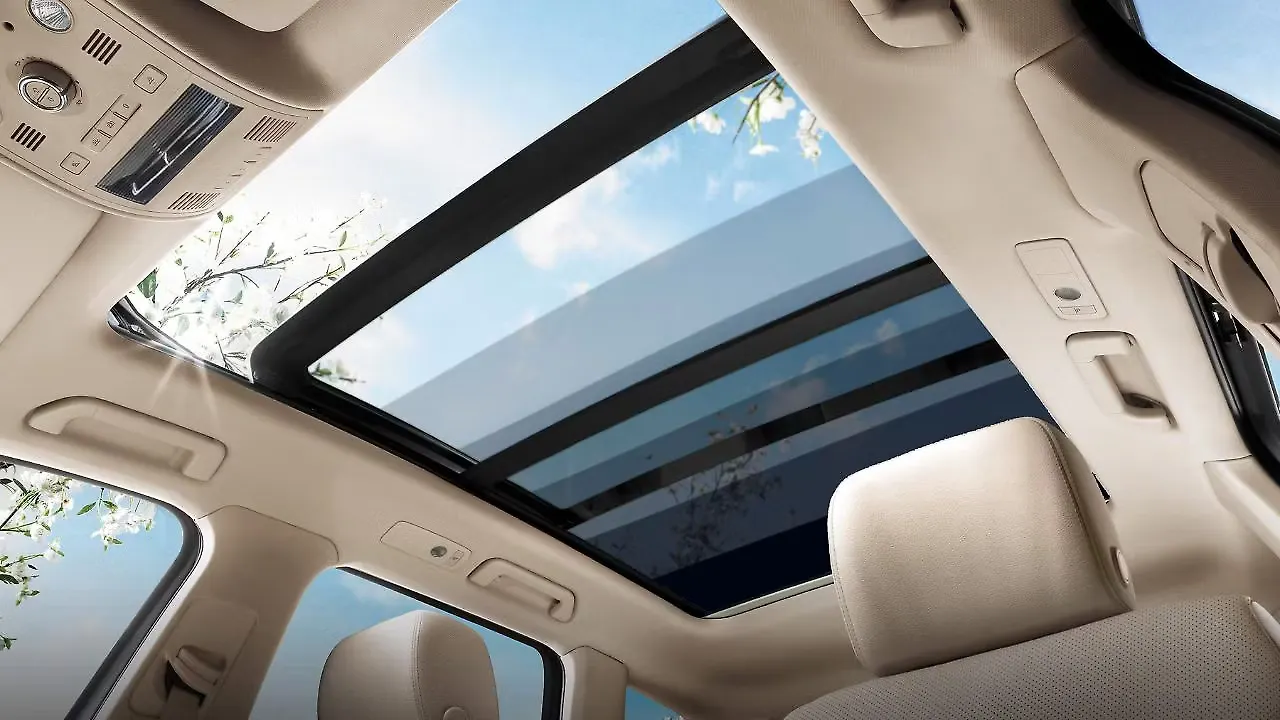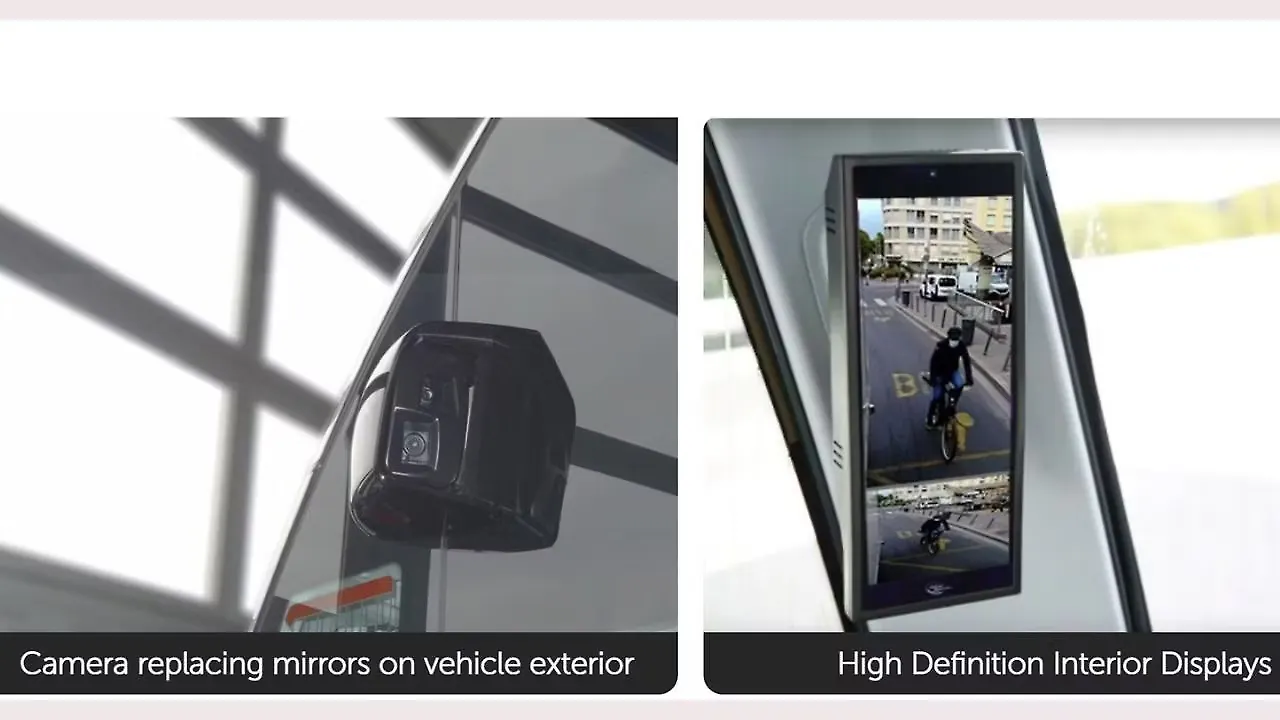
The interplay between 'perceived motion' and 'real motion' significantly impacts passenger comfort, especially in the realm of autonomous vehicles. Consider the experience of reading a book while speeding along in a self-driving car; for many, this scenario can quickly trigger motion sickness. Tel Aviv-based Gauzy advocates an innovative solution, suggesting that advanced light control technology could hold the key to mitigating this issue.
In a conversation with Mobility Outlook, Gauzy’s CEO, Eyal Peso, explained, “We can manipulate how light enters a vehicle using our patented technology to help eliminate motion sickness for passengers in autonomous cars.”
Light control offers sophisticated benefits beyond just passenger comfort. “Our patent on motion sickness is one of the most frequently cited among our more than 140 patents,” Peso noted. Drawing parallels with NASA's approach to mitigating motion sickness in astronauts—who experience a significant difference between perceived and actual motion in space—Peso highlighted that while NASA’s solution involved goggles that control light, Gauzy's innovation is designed specifically for vehicles. As autonomous driving becomes more mainstream, this technology is set to provide a strategic advantage in the evolving mobility landscape.

ADAS Ecosystem
Gauzy is at the forefront of designing and developing key elements of the ADAS ecosystem, from cameras to displays. One of its standout innovations is the Smart-Vision Camera Monitoring System (CMS), which aims to eliminate the need for traditional front, rear, and side-view mirrors in commercial vehicles. 'We are focused on trucks, buses, and coaches,' he said adding that “Our system is the only one in the US—and the first—to receive regulatory approval to completely remove rear-view mirrors in commercial vehicles. (Even Tesla, for all its advancements, is not permitted to remove mirrors from its passenger cars.) Currently, our ADAS system is installed in over 230 buses in Long Island, New York.'
At the recent Olympics, the company provided a modified ADAS for public buses, enhancing both safety and environmental impact. 'We are implementing this technology in more buses than anyone else globally,' Peso added. The system enables OEMs to streamline cabin design by removing bulky mirrors, thereby reducing vehicle weight and improving efficiency.
A study by Geneva Public Transport found that Gauzy's Smart-Vision reduces accident-related costs by up to 40%. Cities like Paris, London, Brisbane, and Lyon have already adopted this technology to boost road safety. Beyond its safety benefits, the Smart-Vision CMS offers enhanced driver comfort by delivering clear, consistent visuals regardless of weather or time of day, reducing fatigue and improving real-time decision-making. Additionally, the system’s aerodynamic design minimises drag, contributing to fuel efficiency and lower emissions. Features such as automatic brightness adjustment and manoeuvre assistance further aid drivers, making its solution a comprehensive upgrade to traditional vehicle mirrors.

Dynamic Light Regulation
Gauzy is also pioneering the use of electronic light control to gradually replace mechanical instruments in both cars and airplanes. A prime example lies in electric vehicles, which are becoming a significant revenue driver for Gauzy's automotive division. 'Most EVs today feature glass roofs. This design choice is primarily due to the battery packs that occupy valuable cabin space, reducing headroom. Traditional sunshades are not an option, as they further restrict interior space,' he said.
Gauzy’s technology addresses this issue by electronically controlling light within the glass itself, eliminating the need for physical sunshades. This innovation not only optimises cabin space but also enhances the driving experience.
Beyond EVs, replacing traditional sun visors and mechanical shades that filter sunlight presents another growth avenue for the company. 'The more advanced your climate control tools, the more efficiently you can use the A/C, which means the batteries won’t have to work as hard,' he noted. 'It’s not just about controlling visible light; managing infrared is crucial, as it generates heat. With better temperature control in the cabin, we can improve fuel and battery efficiency by up to 5% in some cases,' he mentioned.
'Currently, six automotive OEMs are already utilising our products, with many more expected to follow,' Peso adds.
As India witnesses a surge in EV launches, such as the recent introduction by JSW MG Motor India - Windsor featuring an 'infinity view glass roof,' the demand for advanced technologies like those offered by Gauzy is expected to rise.
Convergence Of Innovations
The automotive industry is witnessing a fusion of digital and light control technologies, creating immense opportunities for innovation. Gauzy is at the forefront of this transformation, replacing traditional instrument clusters with its glass-embedded light control technology.
A prime example is BMW's announcement at CES 2023, where Gauzy was featured as a key player in its head-up display technology. BMW aims to shift all dashboard information to the windshield for a more streamlined experience. However, a fully transparent windshield poses challenges for optimal image resolution. To address this, BMW chose Gauzy’s Suspended Particle Device (SPD) material, which can adjust the transparency of the windshield instantaneously, enhancing image clarity under varying lighting conditions.
'Our smart glass can be tinted to suit any lighting environment. Even if the driver is in direct sunlight, the information on the windshield remains clear and readable,' explained Peso. This seamless integration allows BMW to display crucial information directly on the windshield, enhancing the driving experience and safety, allowing drivers to keep their eyes focused on the road.
It may be recalled that the all-electric BMW iX xDrive50, available in India, has smart glass technology for its windscreen.

Major Markets
Gauzy's products are now sold in over 30 countries, with 65% of its business rooted in Europe and about 30% in the US. However, the US market is rapidly expanding and becoming an even more significant part of the company's global footprint. 'We are seeing considerable growth in the US, particularly as our ADAS is already being used in buses across Long Island, and we are in talks with other cities for similar installations,' he said.
While all regions are experiencing growth, the US stands out as the fastest-growing market. China is also a key market where Gauzy collaborates with some of the largest OEMs in both commercial and passenger vehicle sectors. In India, the company is exploring unique opportunities, including architecturef-related projects, further diversifying its global reach.
Manufacturing Facilities
Gauzy currently operates four production facilities located in Tel Aviv, Israel; Stuttgart, Germany; Lyon, France; and Melbourne, Florida. If the company were to establish a new greenfield facility, it would likely be in the Far East to cater to its growing customer base in that region, he said.
Beyond automotive, the company has significant presence in aviation, architecture, and safety sectors, leveraging its innovative smart glass technology. In aviation, the company supplies products to nine jet manufacturers, including Daher, Dassault, and HondaJet, highlighting its versatility and expanding footprint across various industries.
Also Read:
Minda Corporation Signs JV With HCMF For Sunroof Solutions
Hyundai Motor India Introduces VENUE S+ Variant With Electric Sunroof